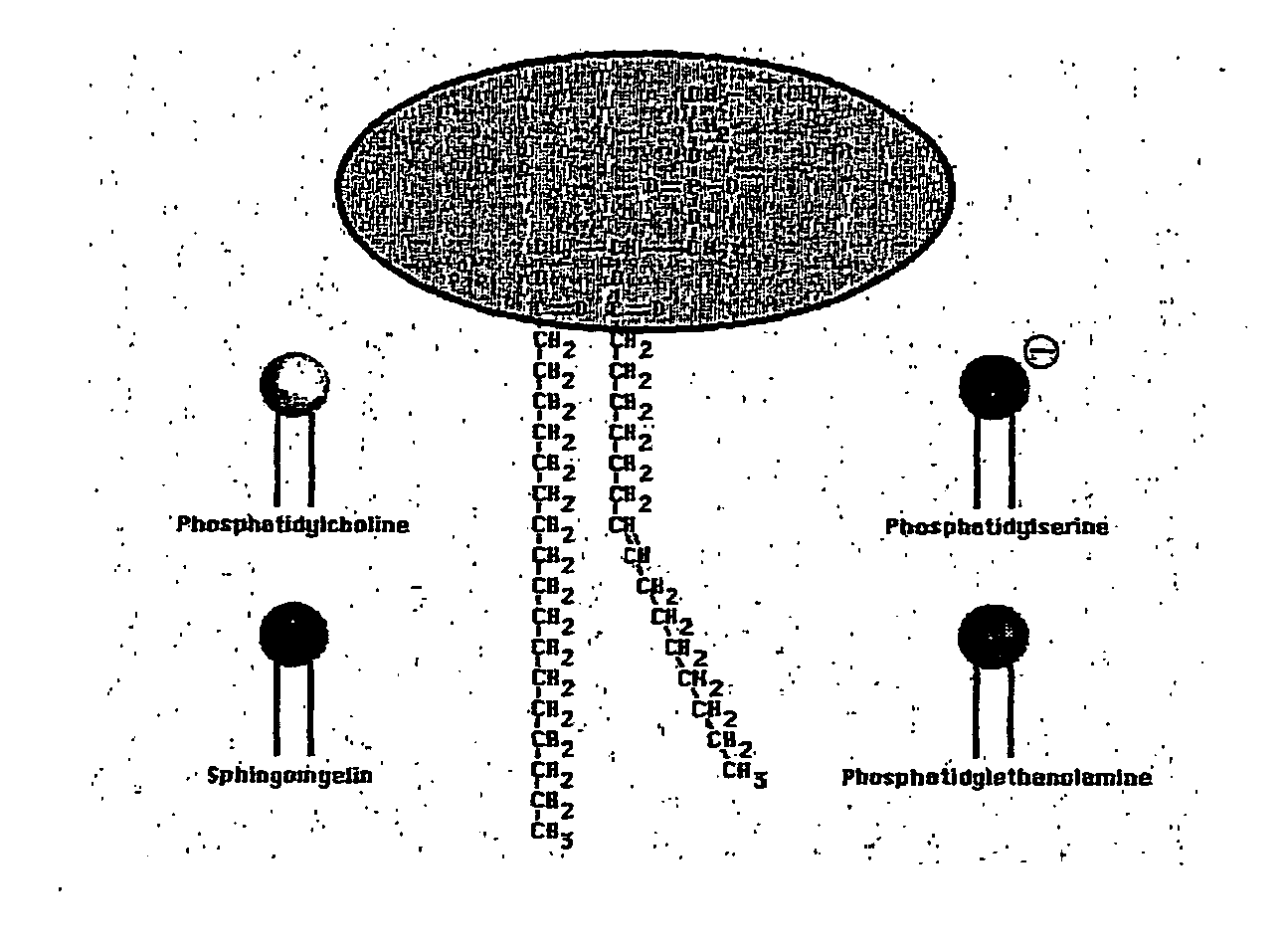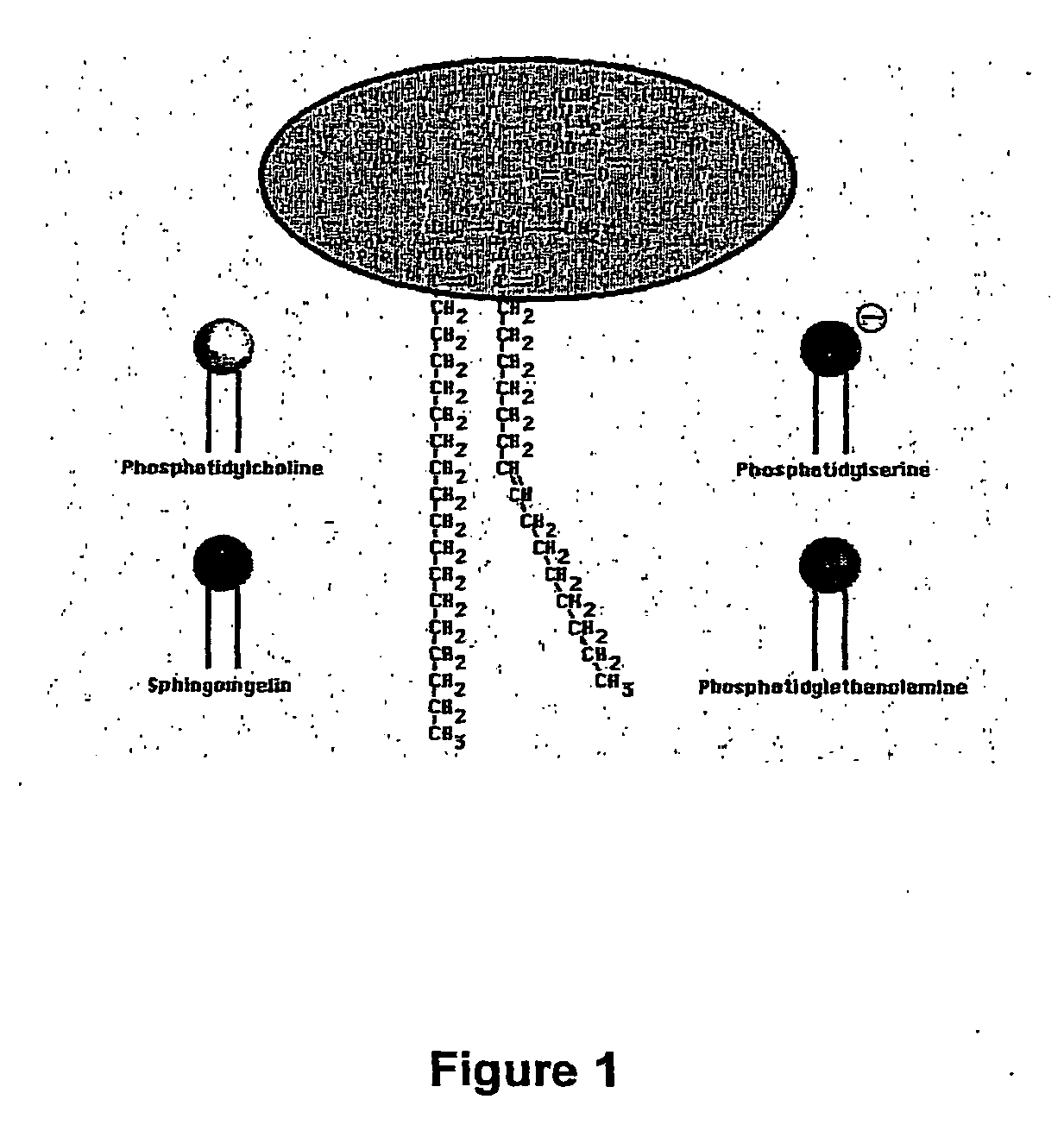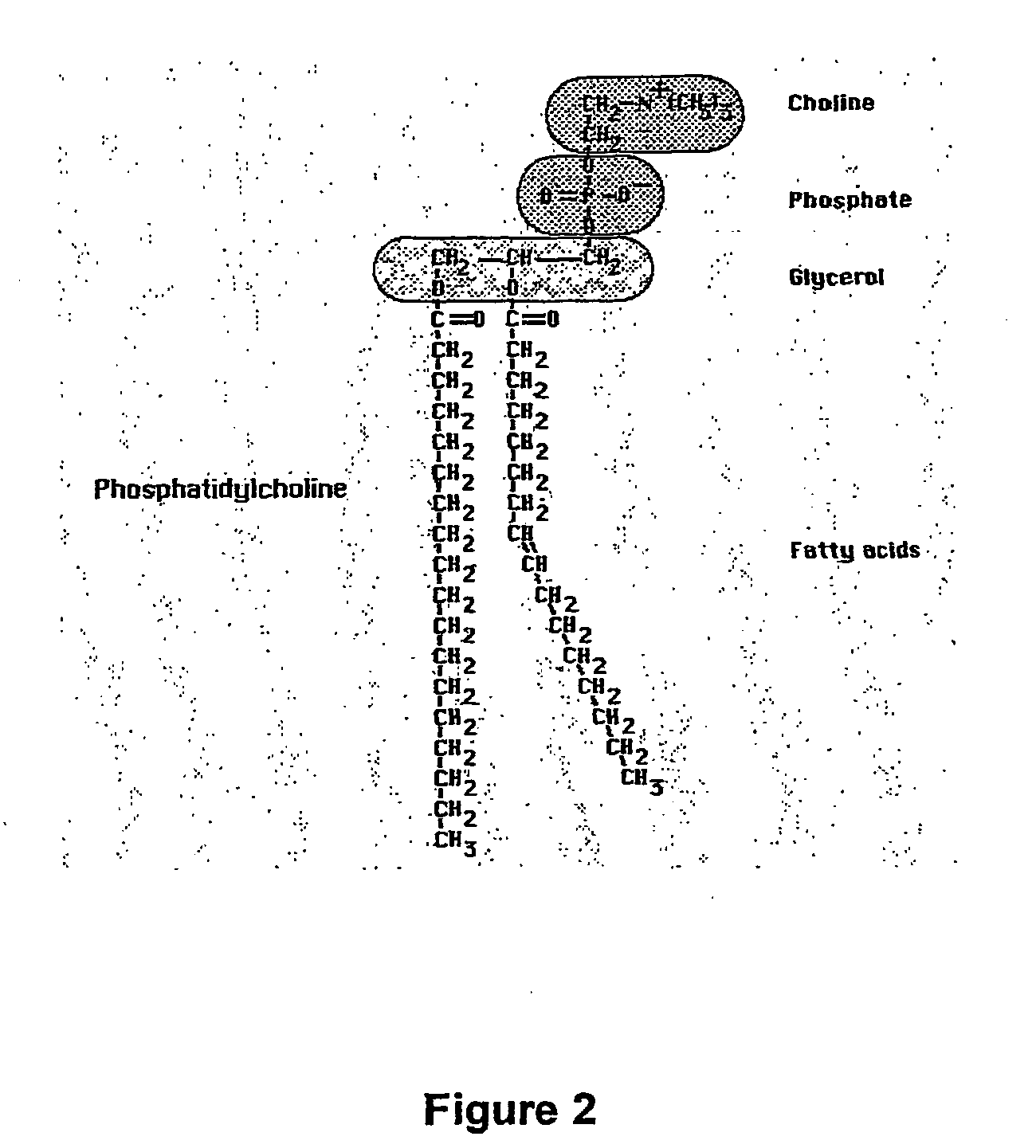Treatment of Cancer and Other Diseases
- Summary
- Abstract
- Description
- Claims
- Application Information
AI Technical Summary
Benefits of technology
Problems solved by technology
Method used
Image
Examples
example 1
Assessment of the Therapeutic Efficacy of 24-ethyl-cholestane-3β,5α,6α-triol in Mice Having Experimentally Induced Large B-Cell Lymphoma
[0094]Investigations were carried out on immunocompromised laboratory mice with experimentally-induced large B-cell lymphoma using hematological, immunological, biochemical, anatomical, and cytological methods. Two groups of 15 mice were employed. In the first group, 24-ethyl-cholestane-3β,5α,6α-triol was administered orally daily at a dosage of 5 mg / kg. The second group served as the control. The following parameters of therapeutic efficacy were compared: dynamics of LDH activity in the blood plasma, content of total protein, and general clinical blood test results. As a reference, the results in mice having experimentally induced large B-cell lymphoma and healthy mice are shown in Table 2
TABLE 2Student'sGroup of animalscoefficientParameterLymphomaHealthy(P)ErythrocyteslOO 12 / 110.02 ± 1.27 10.65 + 0.99 0.22Leukocytes 109 / L12.9 + 2.069.34 + 0.660.00...
example 2
Assessment of the Therapeutic Efficacy of 24-ethyl-cholestane-3β,5α,6α-triol on Human Tumor Cell Lines in Mice
[0099]Immunocompromised mice were used for this experiment. Mice were inbred in a sterile environment and fed ad libitum. Four groups of 40 mice, weighing approximately 20 g each (range: 17-25 g), were used for each tumor type. The human tumor cell lines used were the following: large B-cell lymphoma; squamous-cell carcinoma of the lung; ductal carcinoma breast; and adenocarcinoma of the lung. A suspension of tumor cells was injected in the peritoneum of immunocompromised mice. Following this, mice were examined and weighed daily. After 6-8 days, we observed the development of abdominal carcinomatosis and ascitis. At day 18, we observed the development of an abundant ascitis, which increased the weight of the mice by approximately 20 g. At that time, mice were divided into four groups of 10. One group of 10 mice was used as control and did not receive any medication. The oth...
example 3
Treatment of a Metastatic Renal Cell Carcinoma with 24-ethyl-cholestane-3β,6α-triol
[0103]A 45-year old male patient presented with a metastatic renal cell carcinoma (stage IV), including an 8 cm tumor in the left kidney associated with multiple bilateral lung metastases (1.5-2 cm size). Pathology revealed a sarcomatoid renal cell carcinoma (grade 4 / 4). A left nephrectomy was performed, followed by interferon therapy for 6 weeks. Two months later, a chest CT scan reveals persistence of one metastatic deposit 1 cm in size in both lungs. At this point, the patient is administered 24-ethyl-cholestane-3β,5α,6α-triol (80 mg / day). Six weeks later, a chest CT scan reveals a disappearance of the left lung metastasis. Eight months later, another chest CT scan revealed one 1 mm nodule in the right lower lobe. One year after commencing therapy, the chest CT scan appeared normal.
PUM
| Property | Measurement | Unit |
|---|---|---|
| Time | aaaaa | aaaaa |
| Mass | aaaaa | aaaaa |
| Mass | aaaaa | aaaaa |
Abstract
Description
Claims
Application Information
 Login to View More
Login to View More - R&D
- Intellectual Property
- Life Sciences
- Materials
- Tech Scout
- Unparalleled Data Quality
- Higher Quality Content
- 60% Fewer Hallucinations
Browse by: Latest US Patents, China's latest patents, Technical Efficacy Thesaurus, Application Domain, Technology Topic, Popular Technical Reports.
© 2025 PatSnap. All rights reserved.Legal|Privacy policy|Modern Slavery Act Transparency Statement|Sitemap|About US| Contact US: help@patsnap.com



